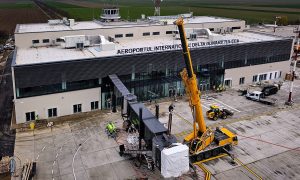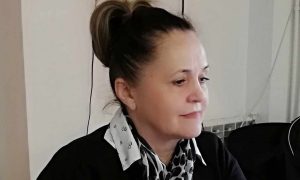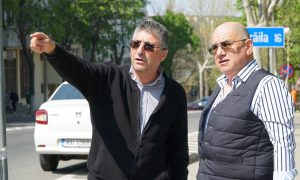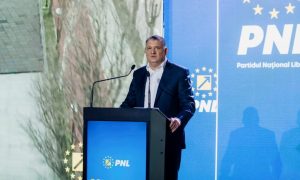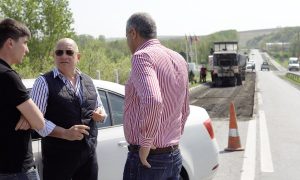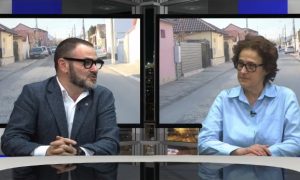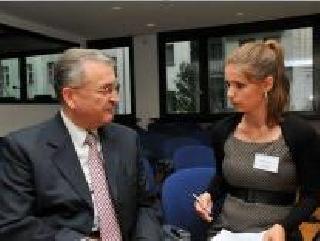
30 Iulie 2009
Interview conducted by Diana Leca (ICD), with contributions from Tim Davis(ICD)
A renowned Romanian politician, International Relations professor, and diplomat, Dr. Vasile Puscas has served as the Romanian Minister for European Affairs since December 2008. Prior to that, he represented the Social-Democratic Party for two terms in the Romanian Parliament (2000-2004, 2004-2008).
Dr. Puscas is perhaps best known as Romania’s Chief Negotiator to the European Union from 2000-2004, and is indeed often credited with securing Romania’s 2007 accession to the EU. Prior to his political career, Dr. Puscas held various prestigious academic positions including Chairman of Cluj Napoca’s Institute for International Studies and Dean of the Faculty of Political Science at Bogdan Voda University.
Immediately after the fall of Communism in his country, Dr. Puscas began developing academic courses in European integration, which would later become fundamental to all …

30 Iulie 2009
Interview conducted by Diana Leca (ICD), with contributions from Tim Davis(ICD)
A renowned Romanian politician, International Relations professor, and diplomat, Dr. Vasile Puscas has served as the Romanian Minister for European Affairs since December 2008. Prior to that, he represented the Social-Democratic Party for two terms in the Romanian Parliament (2000-2004, 2004-2008).
Dr. Puscas is perhaps best known as Romania’s Chief Negotiator to the European Union from 2000-2004, and is indeed often credited with securing Romania’s 2007 accession to the EU. Prior to his political career, Dr. Puscas held various prestigious academic positions including Chairman of Cluj Napoca’s Institute for International Studies and Dean of the Faculty of Political Science at Bogdan Voda University.
Immediately after the fall of Communism in his country, Dr. Puscas began developing academic courses in European integration, which would later become fundamental to all university-level political science and international relations departments. On July 30th, Dr. Puscas gave a lecture entitled “Global Developments and the Role of the EU: An Outlook” at the International Symposium on Cultural Diplomacy 2009. He stressed that in midst of deepening global interdependence, Europe must stand as an example of successful and peaceful regional enlargement and integration. He also emphasized the significance of smart power in transforming Europe into a truly competitive global actor.
Dr. Puscas sat down with a member of the ICD news team after his lecture in order to discuss the effects of EU integration on Romania, Germany’s support for Romania’s accession, Romania’s role in NATO’s Partnership for Peace Program, as well as potential strategies for combating discrimination against some of the newer European Union members. Many consider you to have been a main contributing force to Romania’s accession to the European Union. Two and a half years later, how has Romania’s integration into the EU affected the country in your opinion? Has it facilitated a transformation in the economic arena or significantly influenced domestic policy changes? And do Romanians now feel as if they are part of a “European family,” as some have put it? I shall start with your last question. Of course Romania’s citizens feel European both culturally and historically; from this point of view, there are no doubts.
The second part of your question is a very important one. Two and a half years after becoming a member of the European Union, Romania is still facing a lot of difficulties in the process of full integration, both institutionally and from the point of view of the current state of the internal market. Unfortunately for Romania, we joined the European Union in a period when the economic crisis began to present an unfavourable approach towards both enlargement and integration. That’s why Romania is still in a process of restructuring its economy.
But let’s speak frankly, full integration has been problematic for several reasons: not only because of the crisis, because also due to a variety of divergent interests in the geopolitical space of Central and Eastern Europe, as well as due to certain conservative political approaches domestically. You spoke in your lecture about the importance of European cooperation in matters of deepening integration. Along those lines, how important was Germany’s support for Romania’s accession? I worked very closely with Germany during the negotiation process or, as we tend to call this period, the pre-accession stage.
I must say that Germany was not only very supportive, but was in fact a model for many of the new members. Germany was exemplary not only in terms of its strategies of developing and modernizing the economy, but also in its ability to manage social and political crisis areas. Romania entered NATO in 2004 and held a Summit Meeting in Bucharest last year. Could you tell me a little more about Romania’s role in NATO’s Partnership for Peace Program, in which Romania was the first country to enroll? Exactly, we enrolled in January 1994. In fact, Romania—both in its involvement in the Partnership for Peace Program and after the accession—proved to be not only very active in the process of modernizing our own defense system, but also at the same time contributing to modernizing NATO’s system of defense. Romania was very interested in joining NATO’s international programs as part of the overall process of both European and NATO security modernization.
And finally, you mentioned that an important European Union common value is the fight against discrimination. Regarding this concern, how do you think cultural diplomacy could contribute to combating certain prejudices that some of the older European Union members may have towards Romania as a newer EU country, for instance, with respect to migrant workers? The fifth enlargement of the EU [which included Romania and Bulgaria] was perhaps distinctive from the former ones, both from a geographic and from a cultural point of view. Because of these differences, I think that cultural diplomacy, or a more cultural approach, is very important in managing these new relationships within the European Union.
There are clear signs that a new cultural approach is in progress and the most important issue, in my opinion, is the involvement of the young generation. As a very important European statesman once said to young Europeans: “Please take your bags and visit Eastern Europe!” A great note to end on.
Thank you very much for your time.


